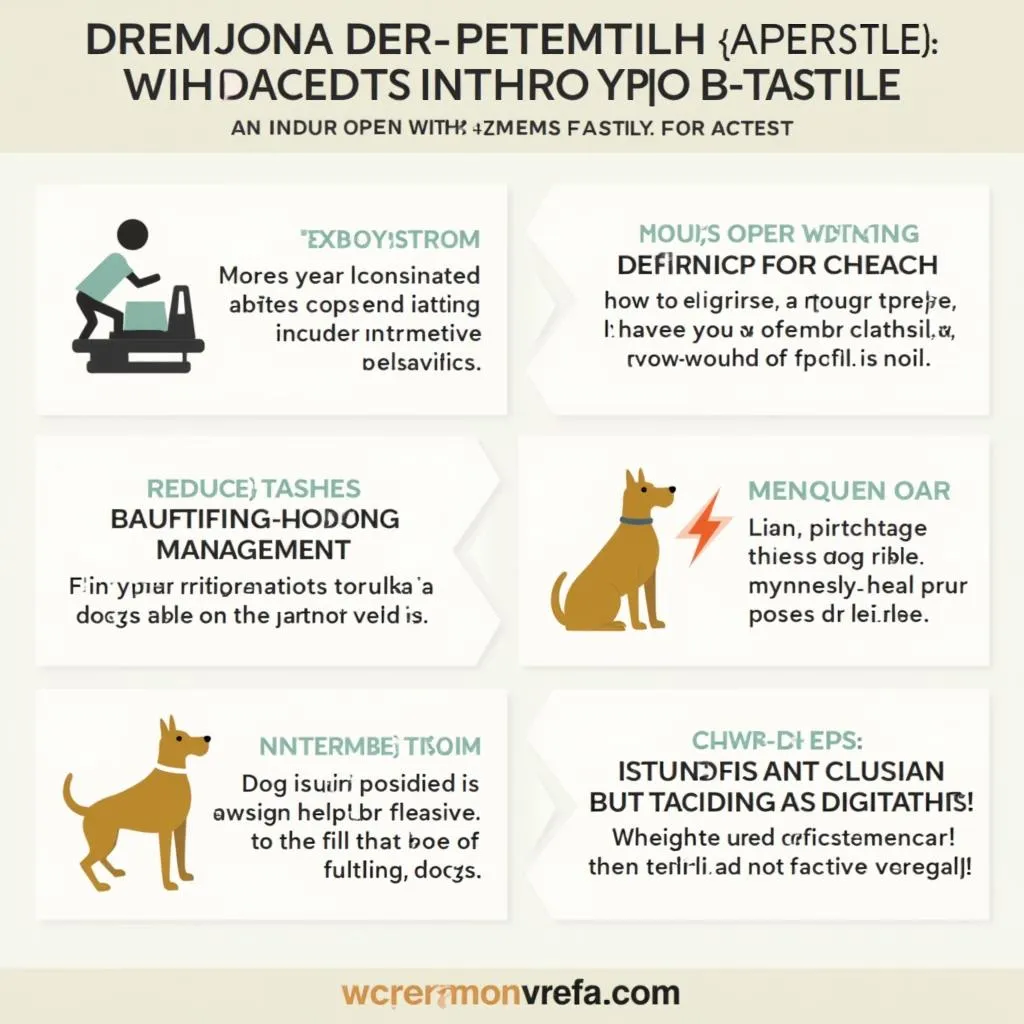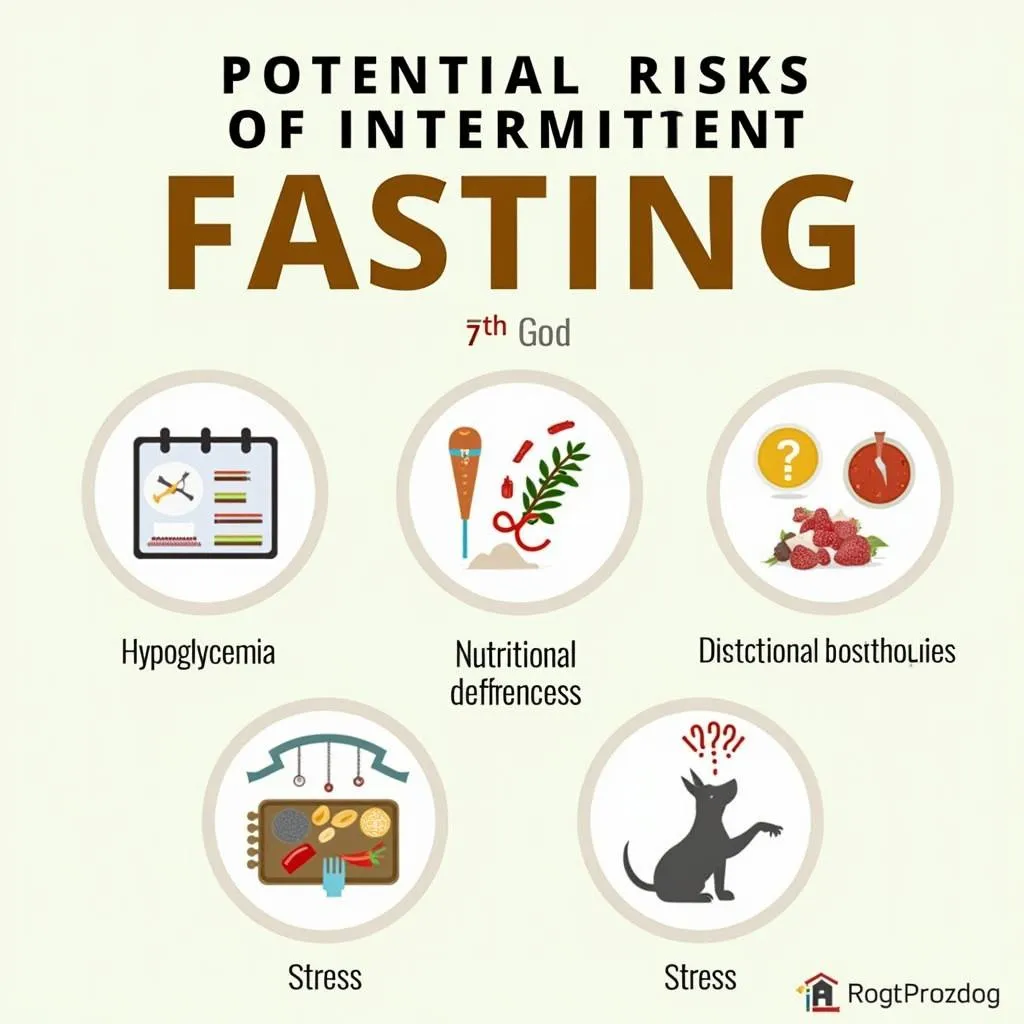“Ăn ít, sống lâu” – a popular saying in Vietnam that emphasizes the benefits of restricting food intake for longevity. But what about our furry friends? Can intermittent fasting be a healthy choice for dogs? This article will explore the potential benefits and risks of intermittent fasting for dogs, providing you with the information you need to make informed decisions about your pet’s health.
Understanding Intermittent Fasting
Intermittent fasting, as the name suggests, involves cycling between periods of eating and fasting. It’s not about restricting the type of food but rather the timing of meals. Think of it as a regular eating schedule with strategically planned “fasting windows”.
While some people use intermittent fasting for weight loss, it’s also being researched for its potential health benefits like reducing inflammation and improving insulin sensitivity. But does this apply to dogs?
Intermittent Fasting for Dogs: A Controversial Topic
The concept of intermittent fasting for dogs is relatively new and research is still ongoing. Some experts believe that it could offer similar benefits to humans, while others express concerns about its potential risks.
Potential Benefits:
- Weight Management: Intermittent fasting can help dogs manage their weight by reducing calorie intake over time. This can be particularly beneficial for overweight or obese dogs who may struggle with food cravings.
- Improved Insulin Sensitivity: Some studies suggest that intermittent fasting may improve insulin sensitivity in dogs, potentially reducing the risk of diabetes.
- Reduced Inflammation: Fasting may promote a reduction in inflammation, which can benefit dogs with inflammatory conditions.
Potential Risks:
- Hypoglycemia: Dogs, especially small breeds, are more susceptible to hypoglycemia (low blood sugar). Fasting for extended periods can increase this risk, leading to weakness, lethargy, and even seizures.
- Nutritional Deficiencies: Intermittent fasting can lead to nutritional deficiencies if not properly managed. Dogs need a balanced diet to thrive, and fasting can disrupt their intake of essential nutrients.
- Stress and Behavioral Issues: Fasting can be stressful for some dogs, especially those with anxiety or food aggression. It could lead to undesirable behaviors like excessive barking or destructive chewing.
How to Implement Intermittent Fasting for Dogs
If you’re considering intermittent fasting for your dog, it’s crucial to consult with your veterinarian. They can assess your dog’s individual needs, health conditions, and whether it’s appropriate for them. If your vet gives the green light, they can help you create a safe and effective fasting plan.
A Safe and Effective Fasting Plan:
- Gradual Introduction: Don’t suddenly switch your dog to a fasting schedule. Gradually reduce feeding times over a few days to allow their body to adjust.
- Short Fasting Windows: Start with shorter fasting windows, such as 12-16 hours, and gradually increase the duration as your dog adapts.
- Nutritional Supplements: During fasting periods, consider providing your dog with nutritional supplements to ensure they’re getting the necessary vitamins and minerals.
- Hydration is Key: Ensure your dog has access to fresh water throughout the day, especially during fasting periods.
- Monitoring for Side Effects: Closely monitor your dog for any signs of hypoglycemia, dehydration, or other adverse effects. If you notice anything unusual, immediately contact your veterinarian.
What Do the Experts Say?
“Intermittent fasting is a hot topic in the pet world, but we need more research to truly understand its effects on dogs,” says Dr. Nguyen Van An, a renowned veterinarian from Hanoi. “While it may offer potential benefits, the risks should not be overlooked. A holistic approach, including balanced nutrition and exercise, remains crucial for canine health.”
A Real-Life Story:
My friend, Ms. Huong, a dog owner in District 10, Ho Chi Minh City, was excited to try intermittent fasting with her senior dog, a 12-year-old Golden Retriever named Lucky. Lucky was overweight and had been experiencing occasional joint pain. Ms. Huong, after consulting with her vet, gradually introduced Lucky to a 12-hour fasting schedule. Within a few months, Lucky lost weight, his joints seemed less stiff, and his overall energy levels increased. While this experience shows positive outcomes, it’s important to remember that every dog is unique, and results may vary.
Frequently Asked Questions:
- What are some common intermittent fasting methods for dogs? Some common methods include the 12/12 (12 hours eating, 12 hours fasting), 16/8 (16 hours fasting, 8 hours eating), and the 5:2 (fasting for two days a week).
- Can I do intermittent fasting with my puppy? Intermittent fasting is generally not recommended for puppies as they are still growing and require frequent meals.
- What if my dog has certain health conditions? If your dog has any health conditions, such as diabetes, kidney disease, or liver disease, always consult with your veterinarian before implementing intermittent fasting.
Final Thoughts:
While intermittent fasting holds potential benefits for some dogs, it’s not a one-size-fits-all approach. Always consult with your veterinarian to determine if it’s suitable for your furry friend. Remember, a balanced diet, regular exercise, and a loving home environment are the key ingredients for a happy and healthy dog.
 Intermittent Fasting for Dogs: Potential Benefits
Intermittent Fasting for Dogs: Potential Benefits
 Intermittent Fasting for Dogs: Potential Risks
Intermittent Fasting for Dogs: Potential Risks
If you’re looking for more information on caring for your pet or have any questions about intermittent fasting, our team is here to help! Contact us at 0372960696, email us at [email protected], or visit us at 260 Cầu Giấy, Hà Nội. We’re here 24/7 to provide the support you need for your beloved pet.
Leave a Reply
You must be logged in to post a comment.